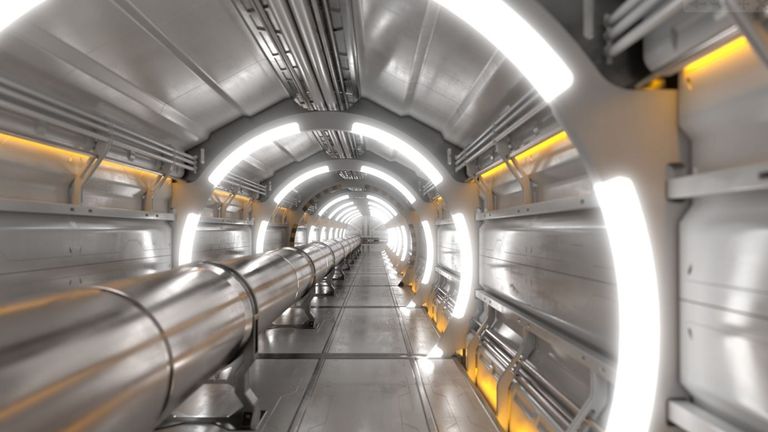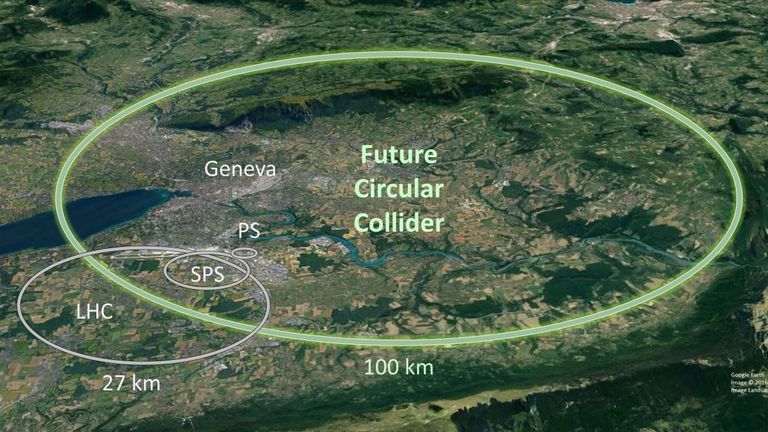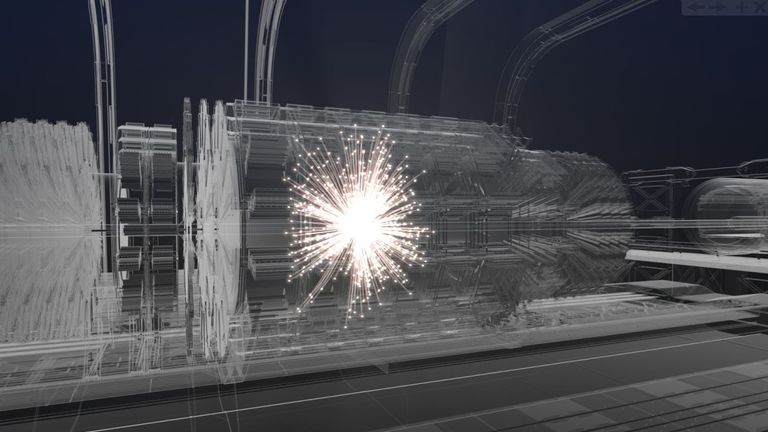CERN plans even larger Large Hadron Collider to find more 'God particles'
The new machine will have the potential to "advance many technologies with a broad impact on society", CERN says.
Tuesday 15 January 2019 17:32, UK
CERN has unveiled plans for an even larger Large Hadron Collider, with a 100km (62-mile) circumference - about four times longer than the current machine.
The Future Circular Collider (FCC) will be almost 10 times more powerful than the current machine too.
CERN (European Organisation for Nuclear Research) said the FCC, which should be in use by 2040, would "significantly expand our knowledge of matter and the universe".
More than 1,300 contributors from 150 universities, research institutes and industrial partners have helped with the research.
The current machine is mainly known for its discovery of the so-called "God particle", the Higgs boson, which enabled researchers to better understand where matter gets its mass from.
CERN, based in Geneva, said the particle's discovery had "opened a new path for research" and created a "door into new physics".
The FCC will use "new-generation high-field superconducting magnets", while its high energy levels will "allow precise studies of how a Higgs particle interacts with another Higgs particle", the organisation added.
Preparatory work on the FCC began in 2014, imagining a machine capable of providing "electron-positron, proton-proton and ion-ion collisions at unprecedented energies and intensities, with the possibility of electron-proton and electron-ion collisions".
Unveiling its Conceptual Design Report, CERN said a machine of "unprecedented energy and intensity" offered "great physics opportunities".
CERN's director general, Fabiola Gianotti, said the FCC had the potential to "advance many technologies with a broad impact on society", while also presenting "new, daunting challenges".
The organisation's director for accelerators and technology, Frederick Bordry, said the FCC would "enable a rich programme to benefit the particle physics community throughout the 21st century".
The cost of the FCC is expected to be about £8bn, more than half of which would be for the construction of a tunnel with a circumference of 100km.
The Large Hadron Collider is currently undergoing upgrades, and is expected to be out of action for two years.





